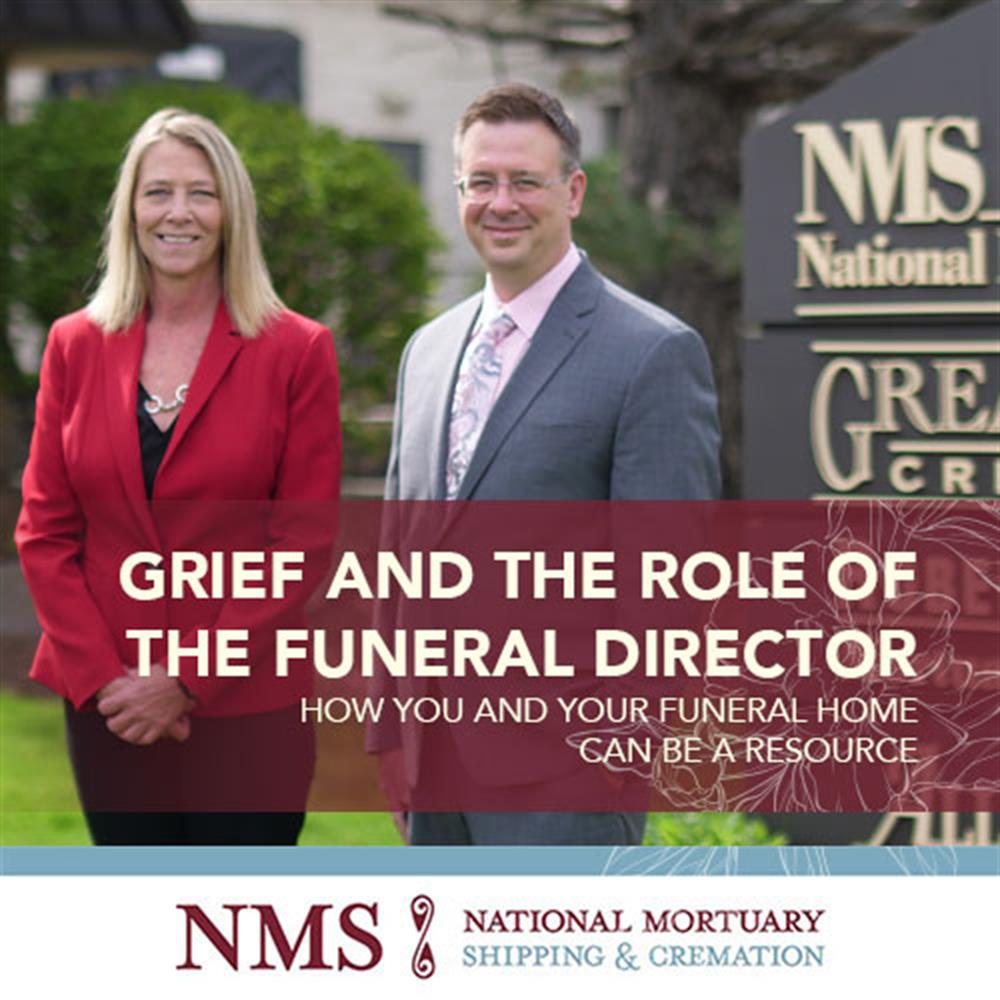
How to Support the Families You Serve
There are few subjects more complex than grief. When you work in the funeral industry, you deal with grief in some capacity every day as you speak with and assist families experiencing the loss of a loved one. Depending on the unique circumstances of the loss, many people will be in the earliest days of their grief and will be looking to you for support and guidance. Funeral industry professionals—especially those just getting started in their profession—must accept this role and be committed to growing their understanding of grief over time.
Remember that grief is unique. There is no right or wrong way for someone to grieve. As you go in and out of conversations with families, be mindful that grief can affect people in different ways. For example, someone may be irritable or angry in their conversations with you—hold space for those who are grieving and respond with grace. Be sensitive to how someone may be feeling or behaving given the circumstances.
Be a compassionate and empathetic listener. Sometimes all a grieving individual wants is to have someone listen to them. Practice active listening: Be present, acknowledge their emotions, and validate their feelings without judgment. You, and your funeral home, will be a safe space for families to share their grief.
Be aware of cultural and religious sensitivities. Remember that different cultures and religions have distinct mourning practices and rituals. Respect the diversity of the families you serve and try to accommodate their wishes and needs when possible.
Expand your knowledge and understanding of grief. While you are not a grief counselor, having an understanding of grief can help you better understand the people you are serving. Learn about the different types of grief—such as disenfranchised grief and prolonged grief disorder—and familiarize yourself with the signs so you can recognize them in others.
Connect families with grief support resources. The grieving process is not linear and there is no end. Many families may feel a little bit lost or overwhelmed when the funeral is over and the formal, and more public, grieving period has ended. Send families forward with a wealth of resources, from literature on coping with loss to contact information for local support groups and counseling services.
Make a personal connection. When possible, consider reaching out to the family several weeks or months following the funeral. A phone call or a handwritten note can make an incredible difference and remind them that their community cares about them.
If we can provide any assistance or support to your funeral home, please do not hesitate to reach out to us 24/7. We are here to offer guidance with complex domestic and international mortuary shipping situations, complicated flight arrangements, and much more.
Request a Quote